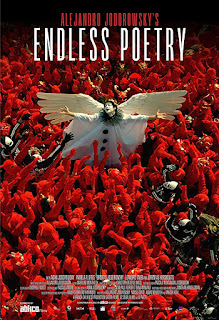FREE ON CINEGEEK.DE Quentin Tarantino - Death Proof
In our B-Ware shop cinema Grindhouse was a big thing (this was the small cinema in Corinth Street, just around the corner from Wild Renate etc). Midnight Movies, which only have their effect after midnight, no matter how much is invested in promotion. Back in the 70s, people liked to combine midnight movies to nice shabby cinema nights and that's exactly what Quentin Tarantino and his friend Robert-Rodriguez tried to do with their Grindhouse double: "Death Proof" and "Planet Terror". Here, everything that used to be sold cheaply is simply re-enacted: Simple characters, action, cheap special effects and even scratches on the film material. In short; we are in the middle of the 00s, the peak of the retro movement! However, I must admit that even in my long cinema career I have seen such a Grindhouse double. Not in the Schöneberger Xenon, not in the Charlottenburger Schlüter and also not in the Weddinger Alhambra (who still knows his way around the half-forgotten West Berlin cinema landscape of the 80s). This is mainly because Tarantino's will was probably not strong enough to produce a real bad film. Everywhere you can see postmodern references and here & there even art. Anyone who went into an original double feature - and by that I mean young men - did so in the hope of seeing some breasts or at least some greasy passages. Stupid that the internet is full of them. Today you don't have to sneak into the cinema any more. Once we even invited the original Lloyd Kaufman to Berlin to show "Toxic Avenger" in his presence. A not very well attended screening, about the same year that Death Proof came to the cinema. Why is that? Because the not so young men who love such films are in fact cineasts who pretend to be immature bullies. Like Quentin Tarantino. And there are not very many of them. The heart of Death Proof is a long highway massacre between a car full of sexy girls and stuntman Mike (Kurt Russell). In between Tarantino offers long, long dialogue passages. A film in two speeds: Break and fast lane. Fortunately, our B-Ware cinema was rarely cleaned and you were even allowed to smoke in it.
















